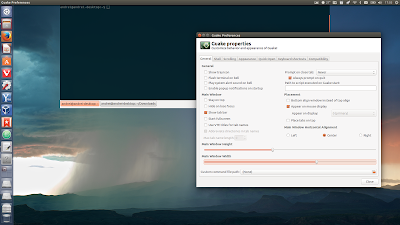Author: Andrew
| Date: August 13, 2015
|
| Tags:
battery,
laptop,
linux,
tlp,
tweaks,
ubuntu
TLP 0.8 was released recently, bringing various ThinkPad improvements, systemd "predictable network interface names" support along with other changes and bug fixes.
For those not familiar with TLP, this is an advanced power management tool that applies various settings and tweaks to help your laptop save battery power. The app tries to do everything automatically, depending on your Linux distribution and hardware (it runs in the background and doesn't come with a GUI) however, you can manually change its settings by editing the TLP configuration file: /etc/default/tlp








